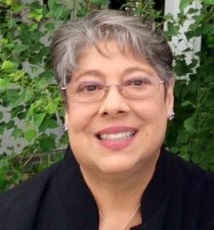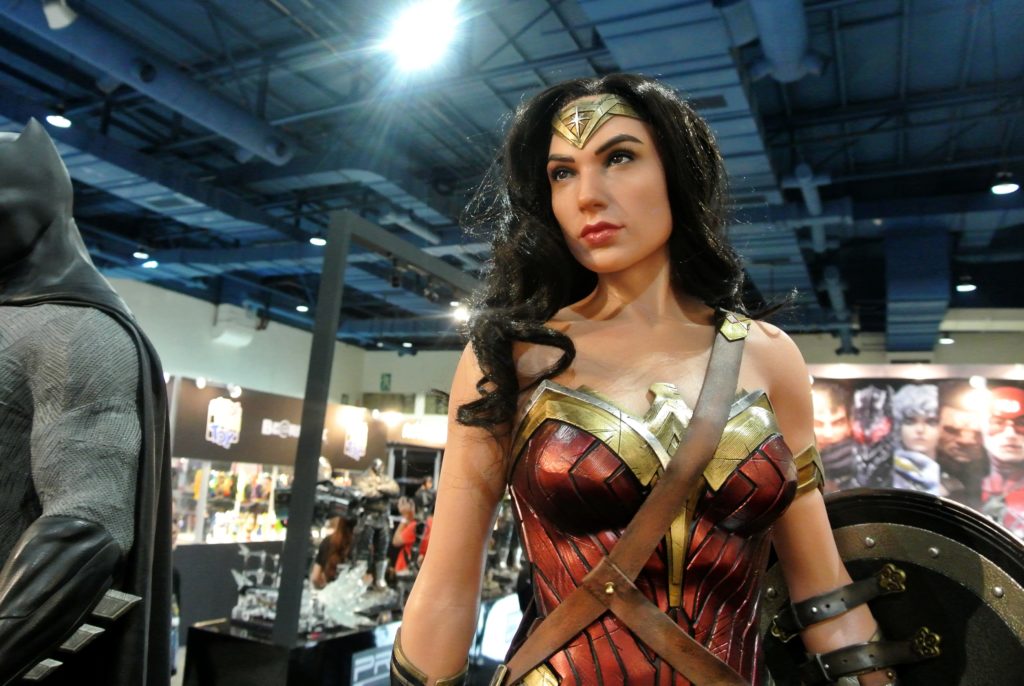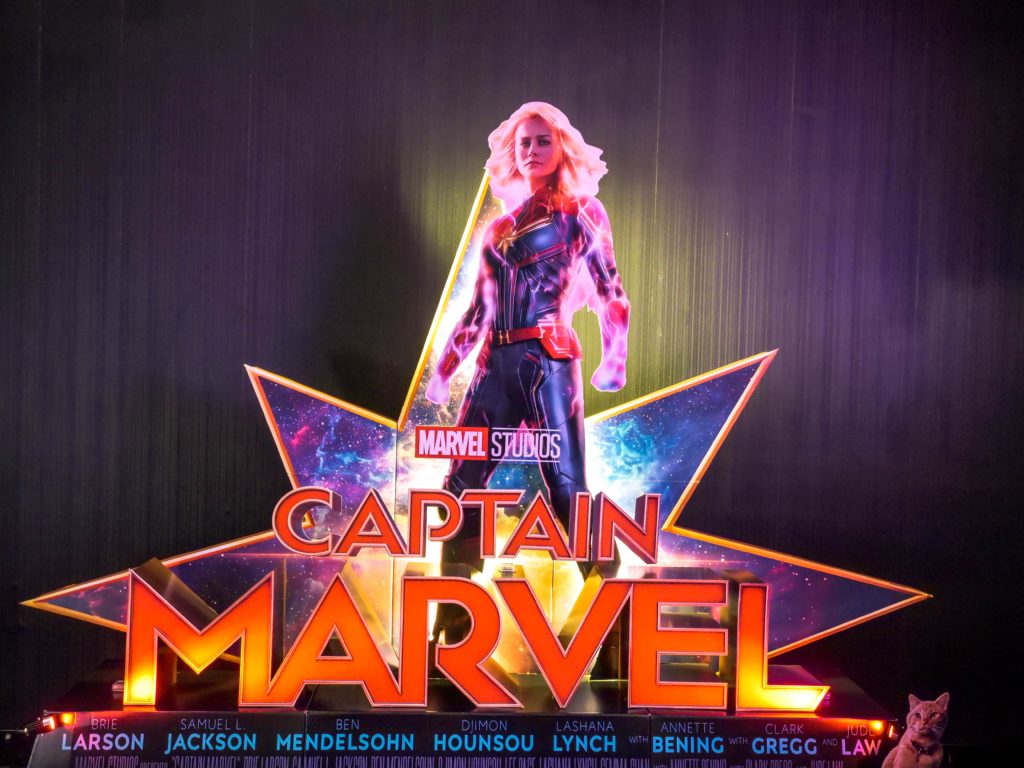 Released with super-hype to match its superhero lead character, “Captain Marvel” is breaking box office records and prompting conversations in breakrooms, kitchens and Sunday school classes. The film has given the world a female American superhero based on the Marvel Comics character Carol Danvers. Sidestepping the need for a spoiler alert for those of you who haven’t seen the movie, I will tell you that Danvers becomes Captain Marvel after the Earth is caught in the center of a galactic conflict. Captain Marvel and other Avengers superheroes join forces to battle evil forces.
Released with super-hype to match its superhero lead character, “Captain Marvel” is breaking box office records and prompting conversations in breakrooms, kitchens and Sunday school classes. The film has given the world a female American superhero based on the Marvel Comics character Carol Danvers. Sidestepping the need for a spoiler alert for those of you who haven’t seen the movie, I will tell you that Danvers becomes Captain Marvel after the Earth is caught in the center of a galactic conflict. Captain Marvel and other Avengers superheroes join forces to battle evil forces.
Netflix brought us Luke Cage, Jessica Jones, Iron Fist and Daredevil – Defenders all. And then there are the superheroes that leave my grandchildren awestruck, namely all of the Avengers and more specifically, Iron Man, Thor, Captain America, Hulk, Black Panther and Spiderman (always Spiderman!).
Gal Gadot: “The responsibility to sow hope and light for a better future for our children is on us.”
As for me, I am an unapologetic fan of Wonder Woman. But I am a fan of much more than the image of strength and bravery seen in this female protagonist in the 2017 film released by Marvel competitor DC Entertainment. I’m a fan of the real, living, human Wonder Woman, actress Gal Gadot.
As one who admires the strength I see in so many women, I was smitten by the tale told in this film. Before she was Wonder Woman, this superhero was Diana, the indomitable Princess of the Amazons. Diana was raised on a sheltered island that seemed much like paradise, but she did not remain in paradise for long. She was trained to be an unconquerable warrior.

Wonder Woman (Shutterstock)
As such, Wonder Woman, who accomplishes all manner of feats of strength throughout the film, was created for the places where our fantasy worlds exist. We all have those fantasy-world places in us where we admire heroes and sheroes from afar, emulating people whose lives seem bigger than life and striving to “be like Mike” or whomever we might idolize.
“Our choices are either to stand in silent assent or to give voice to the kind of dissent that speaks truth to power and that itself holds the power to create change.”
This is not a film review but a challenge to all of us to be more than we thought we could be and to fight some battles we did not think we could fight, much less win. So, I begin by telling you something you may not know about Gal Gadot, the Israeli superstar who has more to offer than a powerful fantasy persona. Gadot recently stood in solidarity with the cause of human rights and in opposition to Israeli Prime Minister Benjamin Netanyahu who had made this statement: “Israel is not a state of all its citizens. According to the nation-state law we passed, Israel is the nation-state of the Jewish people – and not anyone else.”
Gadot did not merely stand up as a celebrity for the ideals of peace, equality and tolerance. In an Instagram post, Gadot sent this strong message, written in Hebrew: “Love thy neighbor as thyself. This isn’t a matter of right left. Jewish Arab. Secular or religious. This is a matter of dialogue. Of dialogue for peace and for equality and for tolerance towards one another. The responsibility to sow hope and light for a better future for our children is on us.”
“Wonder Woman” speaks in support of Israeli Arabs who represent around 20 percent of Israel’s population. At the same time, her advocacy and activism reminds us all to stand in solidarity with folk who do not look like us and speak in languages unfamiliar to us, who do not worship like we worship and who do not live in upscale neighborhoods with well-kept lawns and lush flower beds.
This is most assuredly a time in our history that calls us to “love our neighbor.” This is a time for dialogue and conversation, for acceptance and understanding. This is a time for intentional peacemaking and bridge building that will require our constant vigilance.
Might that kind of vigilance begin in faith communities who provide care to persons at our borders, who care for their community’s poor, who welcome refugees searching for safety, who covenant across racial lines with other faith communities, who treat every person as a person of sacred worth, who help women actualize their gifts for ministry? Could we dare to hope that communities of faith of every stripe will endeavor to bring into existence the “Beloved Community,” first defined by 20th-century philosopher-theologian Josiah Royce and then given deeper meaning by Martin Luther King Jr.?
“Wonder Woman cannot rescue us, and, thankfully, we do not have to be like Wonder Woman to create meaningful change.”
As Christ followers, we stand face to face before racism in its many forms, before poverty that deprives its victims of life-giving resources and opportunities, before violence that destroys lives, before homophobia that creates fear and encourages discrimination and acts of violence. We stand before mysogyny that disrespects women and seeks to harm them in so many ways. We stand before xenophobia that erects walls and builds cages, figuratively and literally.
We stand in a world where acts and words dishonor individuals and vilify groups. Our choices are either to stand in silent assent or to give voice to the kind of dissent that speaks truth to power and that itself holds the power to create change.

Captain Marvel (Shutterstock)
Even Wonder Woman cannot use her superhuman power and courage to destroy all the forms of hate that human beings have created. Only ordinary yet courageous people can destroy hate. It may require a few more Selmas; a few more lawsuits that champion innocent victims; a few more letters, calls and visits to the offices of political power brokers; and a few more reasoned and common sense acts of Congress by elected leaders who serve their constituents more than their top donors. It may mean that we affirm our faith, reflect on our hidden motives and shore up our grace.
Steps such as these may move us closer to what Baptist News Global calls “Conversations that Matter” – meaningful, honest dialogue that calls forth the good in ourselves and in our “opponents.” Gal Gadot expresses very clearly where we need to be: “The responsibility to sow hope and light for a better future for our children is on us.”
Wonder Woman cannot rescue us, and, thankfully, we do not have to be like Wonder Woman to create meaningful change. We do have to dig deeper to find within ourselves – and in our churches, mosques and synagogues – the kind of “superhuman power” that confronts injustice, imposes creative tension into dialogue, seeks the grace of true forgiveness and reconciliation and eventually leads to a vision – even if it’s but a sliver of a larger vision – of the Beloved Community.
